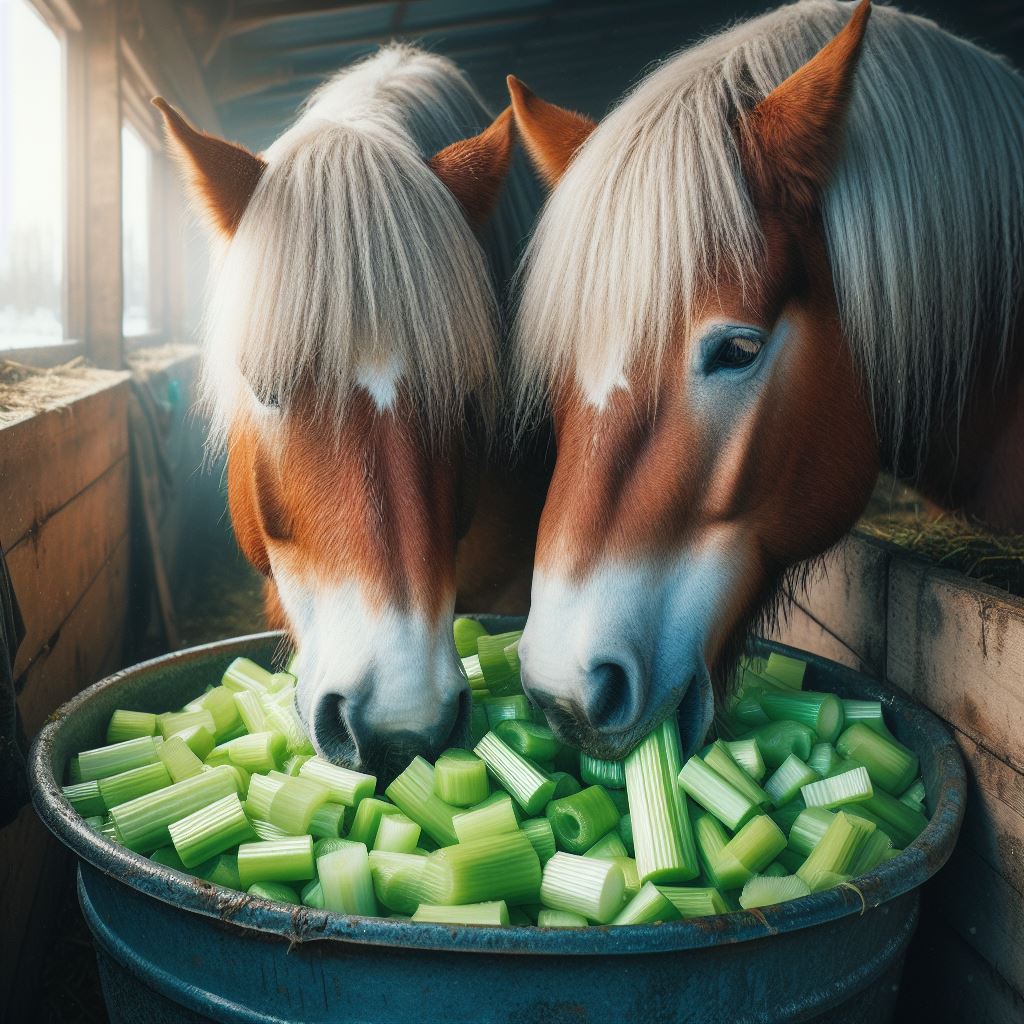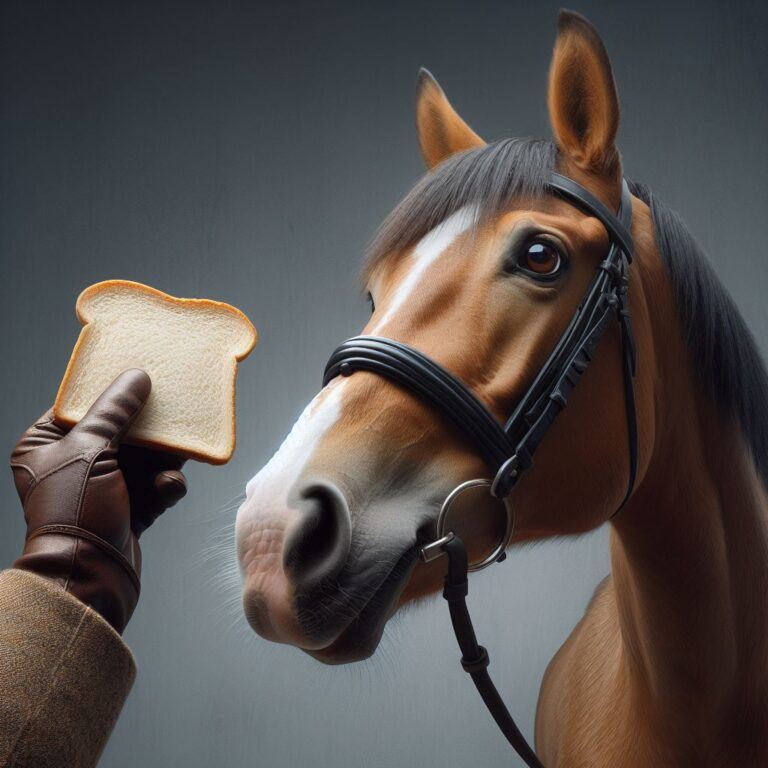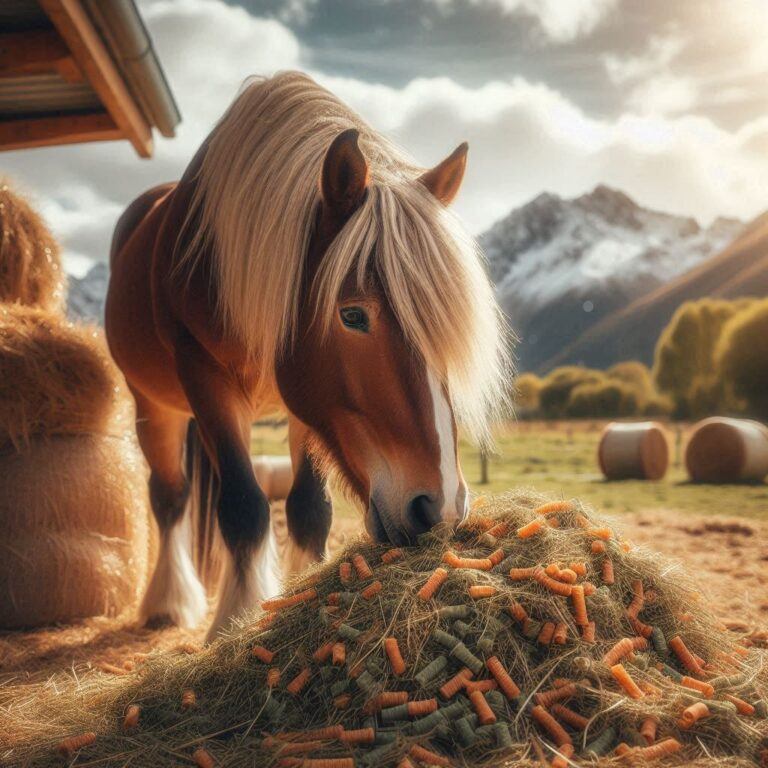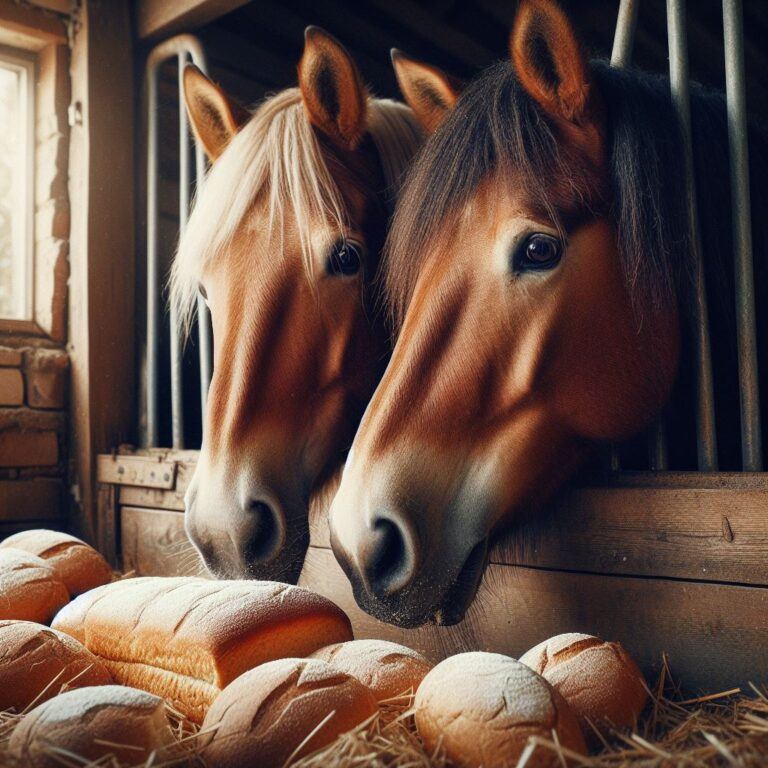Can Horses Safely Eat Celery
Yes, horses can indeed safely eat celery, and it can be a healthy snack for them. It is low in calories but high in vitamins, such as vitamin K, which is good for blood clotting and bone health. It’s also a source of vitamin A, essential for your horse’s vision, immune system, and overall good health,
But, like with any treat, it’s crucial to offer it in moderation to avoid disrupting their dietary balance.
Celery’s high water content and fiber can aid in hydration and digestion, making it a suitable treat, especially on hot days or for horses needing extra fluid intake.
Introducing celery to your horse’s diet should be done slowly. Start with small amounts to ensure your horse does not have any adverse reactions to the new food.
As with introducing any new feed, monitor your horse for any changes in behavior or digestion, and always consult with a veterinarian if you’re unsure.
Preparing celery for your horse is pretty simple, just chop it into bite-sized pieces to prevent any chance of choking. If you’re trying to spice up your horse’s diet or looking for a low-calorie treat to reward good behavior, celery might just be the ideal choice.
But, it’s essential to remember that it’s not a substitute for the horse’s regular diet, which should be rich in hay, grass, and possibly grains such as oats or barley, as recommended by a horse nutritionist.
As we move on to consider the appropriate serving size and frequency for feeding your horse celery, we must always keep in mind that each horse is an individual with unique nutritional needs, and treats should always complement a well-balanced diet.
Understanding the Proper Serving and Frequency
You might be wondering how much celery is appropriate for a horse. It’s crucial to remember that treats, including celery, should make up only a small portion of their diet.
A good rule of thumb is to keep treats to less than 10% of the horse’s total daily intake. Typically, this means a few strips of celery can be offered without causing any dietary imbalances.
Horses, much like people, have varying dietary needs depending on their age, health, and level of activity. It’s essential to consider these factors when introducing any treat, such as celery, apples, bananas or peaches.
For example, a highly active horse may handle treats differently from one that is less active or has metabolic issues.
You may be curious about how regularly you can feed your horse celery. Moderation is key and it’s generally safe to offer celery as a treat once or twice a week.
This kind of infrequent offering won’t disrupt the horse’s main diet of grass, hay, or formulated feed which are their primary sources of nutrition.
As with any food, it’s important to ensure that horses have access to ample fresh water when feeding them celery.
This not only aids in digestion but also helps to prevent any potential impaction in the guts, which could lead to colic, a common and potentially serious problem in horses.
The Safety Guide to Celery for Horses
When introducing celery to your horse’s diet, it’s crucial to be aware of and mitigate any potential risks.
Always keep an eye out for unusual signs in your horse after feeding them celery. If they show symptoms such as hives, swelling, or digestive upset, it’s essential to stop offering celery and consult with your veterinarian.
Pesticides used on celery can be harmful to horses. Therefore, ensure you wash the celery thoroughly before feeding it to your horse to remove any traces of chemicals.
It’s also important to note that too much of a good thing can have adverse effects. Overindulging your horse in celery can lead to colic, a serious digestive issue. To prevent this, stick to the recommended portions and frequency of celery treats.
After you’ve given celery to your horse, monitor their response to the new treat. Healthy horse treats should always complement the diet and not replace it.
While celery can be a safe treat when given correctly, it requires proper handling and awareness of your horse’s individual health.
Always prioritize safety and never hesitate to seek professional advice when in doubt about your horse’s dietary needs.







